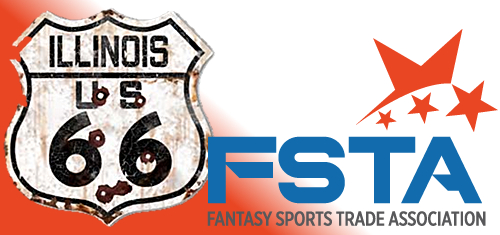 Daily fantasy sports operators have announced the formation of a new self-regulatory body in the hopes of warding off stricter oversight by state and federal government agencies.
Daily fantasy sports operators have announced the formation of a new self-regulatory body in the hopes of warding off stricter oversight by state and federal government agencies.
On Tuesday, former acting US Secretary of Labor Seth Harris announced that he’d been tasked with leading the Fantasy Sports Control Agency (FSCA), a group formed by the Fantasy Sports Trade Association (FSTA) to ensure “ethics and integrity” in the DFS industry.
Harris told Bloomberg News that the FSTA had asked for his involvement “to ensure that it’s not a sham, that it’s not a fake, that it’s not just a publicity stunt.” Harris claimed the FSCA would be a “freestanding” body, independent of the FSTA, whose board includes execs from DFS market leaders DraftKings and FanDuel.
The DFS industry is currently the subject of multiple state and federal law enforcement investigations into the legality of DFS following DraftKings’ data leak controversy earlier this month. Since the controversy broke, multiple state and federal politicians have called for increased oversight of the unregulated DFS industry, the most prominent of which involved Nevada declaring that DFS operators needed gambling licenses.
Harris said the FSCA would focus on four main areas: standards; internal company controls and processes; auditing policies; and enforcement, with FSCA members subject to undisclosed penalties for stepping outside the lines. An unidentified accounting firm would be tasked with monitoring compliance.
But Harris said the FSCA’s goal was prophylactic, not punitive. The aim was to “prevent and preempt violations” that threaten player funds, the integrity of the games and operators’ reputations, and if “we have large numbers of violations and penalties, then we haven’t set the system up right.”
Massachusetts Attorney General Maura Healey, whose office is currently reviewing the DFS industry’s policies and practices, struck a dubious tone when queried on the new agency. Healey told the Boston Herald that she didn’t yet know enough of what the FSCA was proposing but “I highly doubt that I would be satisfied, as a consumer protection matter, trusting or relying on that industry to regulate itself.”
ILLINOIS LATEST TO PROPOSE DFS REGULATION
Tuesday also saw Illinois join the chorus of states looking to impose regulation on the DFS industry. State Rep. Mike Zalewski and Sen. Kwame Raoul‘s HB 4323 seeks to offer players certain consumer protections, while banning players under 18 years of age, allowing players some methods of self-exclusion and making player winnings subject to child support or tax claims, similar to laws affecting casino or lottery winnings. The bill offers no specifics on taxation or license fees.
Similar legislation has been proposed in other states, including in Minnesota earlier this week. Like HB 4323, these other state bills all carefully avoid calling DFS gambling, because to do so would render it a banned activity under the federal PASPA sports betting prohibition. Nevada, which enjoys a PASPA exemption, wasn’t subject to the same semantic burden and could therefore confirm that DFS was indeed a duck because it walked, talked and gambled like a duck.
Unlike their hostile reaction to Nevada’s ruling, DFS operators have embraced Zalewski’s effort. FanDuel CEO Nigel Eccles said his firm welcomed the opportunity to work with Illinois legislators to “safeguard consumers, introduce best practices that the entire fantasy industry can adhere to, and ensuring that sports fans across Illinois can continue to play fantasy sports.”
Illinois legislators are currently grappling with a budget impasse and HB 4323 won’t be up for discussion until the Illinois state legislature reconvenes in the spring. In the meantime, the Illinois Gaming Board is conducting its own review of DFS to determine whether the sites are acting in violation of state law.
